Leviticus 9 meaning explained in AI Summary
The First Sacrifices of Aaron
- Inauguration of the Tabernacle Service: This chapter narrates the very first sacrifices offered by Aaron after his official consecration as high priest. These sacrifices served to inaugurate the tabernacle service and demonstrate the proper functioning of the newly established system of worship.
- Focus on Atonement: Significantly, the initial sacrifices offered by Aaron included a bull for sin, a ram for a burnt offering, and another ram for an ordination offering. This emphasis on atonement highlights the ongoing need for forgiveness and God's grace, even for those designated as religious leaders.
- Fire from Heaven: The chapter concludes with a dramatic scene where fire miraculously consumes the offering on the altar. This can be interpreted as a sign of God's acceptance of the sacrifices and His presence within the tabernacle.
Chapter 9 of Leviticus marks a pivotal moment: the official inauguration of the Tabernacle and the priesthood. After meticulous preparations outlined in previous chapters, the day arrives for Aaron and his sons to begin their sacred duties.
1. The First Offerings (vv. 1-14):
- Moses instructs Aaron to perform a series of sin offerings, burnt offerings, and fellowship offerings.
- These offerings are specifically designed to purify the altar, the priests, and the people, preparing them for God's presence.
- The offerings are meticulously described, emphasizing the importance of following God's instructions precisely.
2. Fire from Heaven (vv. 15-24):
- After Aaron presents the offerings, God sends fire from heaven, consuming the sacrifices on the altar.
- This dramatic event signifies God's acceptance of the offerings and his presence among the Israelites.
- The people react with awe and worship, recognizing the power and holiness of God.
3. Aaron Blesses the People (vv. 22-24):
- Following the fire from heaven, Aaron blesses the people, fulfilling his priestly role as mediator between God and humanity.
- This blessing signifies the restoration of the relationship between God and his people.
4. Moses and Aaron Enter the Tabernacle (vv. 23-24):
- Moses and Aaron enter the Tabernacle together, symbolizing the unity of the priesthood and the prophetic office.
- They emerge and bless the people again, further emphasizing the blessings that come from obedience to God.
5. The Glory of the Lord Appears (vv. 23-24):
- The glory of the Lord appears to all the people, a visible manifestation of God's presence and power.
- This awe-inspiring event confirms the sanctity of the Tabernacle and the establishment of the priesthood.
Overall Significance:
Leviticus 9 is a powerful reminder of God's holiness, his desire for relationship with his people, and the importance of obedience to his commands. The chapter establishes the crucial role of the priesthood in mediating between God and humanity, offering sacrifices and blessings on behalf of the people. The fire from heaven and the appearance of God's glory highlight the reality of God's presence and the transformative power of encountering the divine.
Leviticus 9 bible study ai commentary
The inauguration of the Aaronic priesthood marks the central theme of Leviticus 9. After seven days of private consecration, the eighth day serves as the public debut of Aaron and his sons as mediators for Israel. This chapter meticulously details the first official sacrifices offered by Aaron—first for his own sin, then for the people's. The narrative culminates in the dramatic appearance of God's glory and a consuming fire from His presence, which serves as an unambiguous divine affirmation of the newly established priesthood and the sacrificial system as the means of atonement and access to God.
Leviticus 9 Context
This chapter occurs on the "eighth day," immediately following the seven-day ordination period of Aaron and his sons detailed in Leviticus 8. Culturally, the number eight signifies a new beginning, a start of a new cycle. The meticulous, step-by-step instructions contrast with the more spontaneous and sometimes manipulative rituals of surrounding Canaanite and Egyptian religions. The narrative establishes that true worship is not initiated by human will but is a response to divine command. The public and visible nature of God's acceptance was crucial for the fledgling nation to trust this new system of mediation instituted by Yahweh, not by Moses or Aaron's own authority.
Leviticus 9:1-4
On the eighth day Moses summoned Aaron and his sons and the elders of Israel. And he said to Aaron, “Take for yourself a bull calf for a sin offering and a ram for a burnt offering, both without blemish, and offer them before the LORD. And speak to the people of Israel, saying, ‘Take a male goat for a sin offering, and a calf and a lamb, both a year old and without blemish, for a burnt offering, and an ox and a ram for a peace offering, to sacrifice before the LORD, and a grain offering mixed with oil, for today the LORD will appear to you.’”
In-depth-analysis
- The Eighth Day: Symbolizes a new beginning. After the seven days of consecration (completion), the priestly ministry officially commences.
- The Summon: Moses, as God's prophet and covenant mediator, initiates the proceedings, reinforcing that the priesthood operates under God's authority transmitted through His word.
- Aaron’s Offering First: A bull calf is prescribed for Aaron's sin offering. This highlights the vital theological point that the human high priest is himself a sinner and must be atoned for before he can mediate for others.
- The Purpose Revealed: The reason for this specific ceremony is explicitly stated: "today the LORD will appear to you." The sacrifices are preparatory for a divine revelation, a Theophany. The glory (kāvôd) of the Lord is the goal.
- People's Offerings: A comprehensive set of offerings is required from the people, covering sin (goat), consecration (burnt offering), and fellowship (peace offering), demonstrating the full scope of what the sacrificial system accomplishes.
Bible references
- Exodus 24:16: "...the glory of the LORD dwelt on Mount Sinai... and on the seventh day he called to Moses..." (Precedent for God's glory appearing after a period of waiting).
- Hebrews 5:3: "Because of his weakness, he is obligated to offer sacrifices for his own sins just as he does for those of the people." (Explicit NT commentary on why Aaron had to offer for himself first).
- Hebrews 7:27: "He has no need, like those high priests, to offer sacrifices daily, first for his own sins and then for those of the people..." (Contrasts Aaron's repetitive need for personal atonement with Christ's perfection).
Cross references
Ezek 43:27 (eighth day consecration of the altar); Lev 4:3 (bull for priest's sin offering); Lev 8:2 (consecration instructions); 1 Chr 15:25-28 (offerings precede bringing Ark); Exod 29:43 (promise of meeting and consecrating by glory).
Leviticus 9:5-7
And they brought what Moses commanded before the tent of meeting, and all the congregation drew near and stood before the LORD. And Moses said, “This is the thing that the LORD commanded you to do, that the glory of the LORD may appear to you.” Then Moses said to Aaron, “Draw near to the altar and offer your sin offering and your burnt offering and make atonement for yourself and for the people, and bring the offering of the people and make atonement for them, as the LORD has commanded.”
In-depth-analysis
- Congregation Drew Near: The entire community is involved as witnesses. This is not a secret rite but a public covenant event.
- Obedience and Glory: Moses directly links their obedience ("the thing that the LORD commanded you to do") with the promised result ("that the glory of the LORD may appear"). Divine manifestation is contingent on following the divine pattern.
- "Draw Near": The Hebrew qārāb (draw near) is a technical term for approaching the sacred space of the altar to minister. It signifies bridging the gap between the common and the holy.
- Atonement Order: Moses again makes the order explicit: first atonement for the mediator ("yourself"), then for the mediated ("the people"). The priest's own right standing is a prerequisite for his function.
Bible references
- Hebrews 9:7: "...but into the second only the high priest goes, and he but once a year, and not without taking blood, which he offers for himself and for the unintentional sins of the people." (Clarifies the two-fold atonement role).
- Exodus 19:17: "Then Moses brought the people out of the camp to meet God, and they took their stand at the foot of the mountain." (Parallels the people gathering to witness a divine appearance).
Cross references
Num 16:5 (God shows who is holy and may draw near); Ps 65:4 (blessed is the one chosen to draw near); Eph 2:13 (in Christ we who were far off are brought near); Jas 4:8 (draw near to God and he will draw near to you).
Leviticus 9:8-14
So Aaron drew near to the altar and killed the calf of the sin offering, which was for himself... He also killed the burnt offering... Thus he presented the offerings.
In-depth-analysis
- Aaron Obeys: The text methodically recounts Aaron's precise adherence to the laws for the sin and burnt offerings established in Leviticus 4 and 1. He doesn't innovate; he obeys.
- Blood on the Horns: Applying the blood of the sin offering to the horns of the altar purifies the very instrument of sacrifice, consecrating the point of contact between man and God. The horns symbolized power and a place of refuge.
- Ascending Smoke: The burning of the fat portions as a "pleasing aroma" and the entire animal for the burnt offering signifies complete surrender and dedication to God.
Bible references
- Leviticus 4:7: "And the priest shall put some of the blood on the horns of the altar of fragrant incense before the LORD..." (Aaron follows the specific sin offering procedure).
- Philippians 4:18: "...a fragrant offering, a sacrifice acceptable and pleasing to God." (NT use of sacrificial aroma imagery for acceptable service).
Cross references
Lev 8:14-17 (sin offering during consecration); Heb 2:17 (Christ as a merciful high priest making propitiation); Exod 29:38-42 (the daily burnt offering command).
Leviticus 9:15-21
Then he presented the people's offering and took the goat of the sin offering that was for the people and killed it and offered it for sin, as he had offered the first... as was decreed.
In-depth-analysis
- Mediating for the People: Now cleansed himself, Aaron can effectively minister on behalf of the nation.
- Full Range of Offerings: The sequence is theologically significant:
- Sin Offering (Goat): Atonement for sin is foundational. Sin must be dealt with first.
- Burnt Offering (Calf/Lamb): Represents total consecration and worship from the people to God.
- Peace Offering (Ox/Ram): After sin is covered and dedication is expressed, this offering signifies fellowship, communion, and peace with God. The people would eat a portion of this meal.
- Grain Offering: Acknowledges God's provision and sustenance.
- "As was decreed": The text emphasizes that Aaron is operating according to established rule (mishpat), not his own intuition.
Bible references
- Colossians 1:20: "...and through him to reconcile to himself all things... by making peace by the blood of his cross." (Shows Christ's ultimate sacrifice achieving the goals of all these offerings).
- Ephesians 5:2: "And walk in love, as Christ loved us and gave himself up for us, a fragrant offering and sacrifice to God." (Connects Christ's sacrifice to the burnt offering's pleasing aroma).
- 1 Corinthians 10:16-18: (Discusses participation in Christ's body and blood in communion, echoing the shared meal of the peace offering).
Cross references
Lev 3 (Peace Offering rules); Lev 7:29-34 (priest's portion of peace offering); Isa 53:10 (the Lord makes his soul an offering for guilt).
Leviticus 9:22
Then Aaron lifted up his hands toward the people and blessed them. And he came down from offering the sin offering and the burnt offering and the peace offerings.
In-depth-analysis
- The Priestly Blessing: Having completed the rites of atonement and reconciliation, Aaron's first official act toward the people is to bless them. This demonstrates that God's desire through the priesthood is not merely judgment, but blessing and shalom (peace/wholeness).
- Lifted Hands: A posture of priestly intercession and blessing, channeling divine favor to the people.
- Came Down: Descending from the altar platform signifies the completion of the atoning work before the blessing is pronounced.
Bible references
- Numbers 6:23-27: "Speak to Aaron and his sons, saying, Thus you shall bless the people of Israel... The LORD bless you and keep you..." (This is the specific blessing Aaron likely pronounced).
- Luke 24:50: "Then he led them out as far as Bethany, and lifting up his hands he blessed them." (Christ's final action on earth as High Priest before His ascension was to bless His people in this same posture).
Cross references
1 Kgs 8:14 (Solomon turns and blesses the assembly); 2 Chr 30:27 (priests blessed the people and their voice was heard); Heb 7:7 (the lesser is blessed by the greater).
Leviticus 9:23
And Moses and Aaron went into the tent of meeting, and when they came out, they blessed the people, and the glory of the LORD appeared to all the people.
In-depth-analysis
- Moses and Aaron Together: The prophet (Law) and the priest (Mediation) go into the presence of God together. This may symbolize the transition of authority for the Tent from Moses to Aaron or a joint final intercession. Their unity is critical.
- A Second Blessing: After coming out from the immediate presence of God, they bless the people again, this time with a reinforced authority and power.
- Glory Appeared: The moment of truth. Following the complete obedience of Moses and Aaron and their unified ministry, God fulfills His promise from verse 4. The kāvôd—the visible, weighty presence of God—is manifest to everyone.
Bible references
- Exodus 40:34-35: "Then the cloud covered the tent of meeting, and the glory of the LORD filled the tabernacle." (The initial filling of the tabernacle, now affirmed in its priestly function).
- 1 Kings 8:10-11: "And when the priests came out of the Holy Place, a cloud filled the house of the LORD... for the glory of the LORD filled the house..." (A parallel event at the dedication of Solomon's Temple).
- John 1:14: "And the Word became flesh and dwelt among us, and we have seen his glory, glory as of the only Son from the Father..." (The ultimate manifestation of God's glory is in the person of Jesus).
Cross references
Ezek 43:2-4 (Ezekiel's vision of the glory returning to the temple); Num 14:10 (glory appears at a moment of crisis); 2 Cor 4:6 (God shines in our hearts to give the light of the knowledge of the glory of God in the face of Jesus Christ).
Leviticus 9:24
And fire came out from before the LORD and consumed the burnt offering and the fat on the altar. And when all the people saw it, they shouted and fell on their faces.
In-depth-analysis
- Fire from the LORD: This is not ordinary fire. It is a supernatural sign of divine acceptance. God Himself lights the fire of His altar, demonstrating that He has accepted the sacrifices and authenticated Aaron's ministry. It is God’s divine "Amen."
- Consumed: The fire completely burns up what was left of the burnt offering and the fat of the peace offerings, showing the satisfaction of God with the atoning work.
- Shouted and Fell: The people's reaction is twofold and appropriate: a shout of joy, praise, and victory, and immediately falling on their faces in holy terror, reverence, and awe at the direct manifestation of God's power.
Polemics
This event stands in stark polemical contrast to pagan rituals where priests worked to manipulate the gods with "magic" and human-lit fires. Here, humans obey and prepare, but God alone acts, demonstrating His sovereignty and confirming His chosen system. The fire comes from the Lord, not conjured by the priests.
Bible references
- 1 Kings 18:38-39: "Then the fire of the LORD fell and consumed the burnt offering... And when all the people saw it, they fell on their faces and said, ‘The LORD, he is God; the LORD, he is God.’" (The definitive contest on Mt. Carmel used this same sign of authenticity).
- Acts 2:3-4: "And divided tongues as of fire appeared to them and rested on each one of them. And they were all filled with the Holy Spirit..." (The new covenant is inaugurated with a manifestation of divine fire, empowering its ministers).
- Judges 6:21: "Then the angel of the LORD... touched the meat and the unleavened cakes. And fire sprang up from the rock and consumed..." (Gideon's calling is confirmed by divine fire accepting his offering).
Cross references
Gen 15:17 (God's presence as a smoking fire pot and flaming torch in covenant with Abram); 1 Chr 21:26 (fire from heaven consumes David's offering); 2 Chr 7:1 (fire consumes the offering at Solomon's temple dedication); Heb 12:28-29 (our God is a consuming fire).
Leviticus Chapter 9 Analysis
- The Command-Obedience-Blessing Pattern: This chapter perfectly illustrates a foundational biblical theme: God gives a precise command, man's faithful obedience follows, and divine approval and blessing are the result. This pattern is immediately contrasted in chapter 10, which shows the fatal consequence of deviating from God's command.
- Typology of Christ: Aaron serves as a type of Christ but also as a contrast. Like Aaron, Christ is our High Priest who offers a sacrifice. Unlike Aaron, Christ did not need to offer for His own sins (Heb 7:27), His one sacrifice was final (Heb 10:10), and He is the ultimate revelation of God's glory (John 1:14).
- The Priesthood of All Believers: While Leviticus establishes a specific, exclusive priesthood, the NT reveals that through Christ, all believers have become "a royal priesthood" (1 Pet 2:9). The access granted to Aaron is a forerunner of the direct access all believers now have through Christ (Heb 10:19-22).
- Fire as Judgment and Acceptance: The same fire that here signifies acceptance and life will, in the very next chapter (Lev 10:1-2), become an instrument of judgment and death for Nadab and Abihu. It demonstrates that God's holy presence is both our salvation and a mortal danger if not approached on His terms.
Leviticus 9 Summary
On the eighth day, Aaron, following Moses' commands precisely, inaugurates the tabernacle's ministry by first offering sacrifices for his own sin, then for the people's. After completing the offerings for atonement, consecration, and fellowship, Aaron blesses the people. In a dramatic climax validating the entire process, the glory of God appears, and fire flashes from His presence to consume the offerings, confirming divine acceptance and causing the people to respond with joyful shouting and reverent fear.
Leviticus 9 AI Image Audio and Video

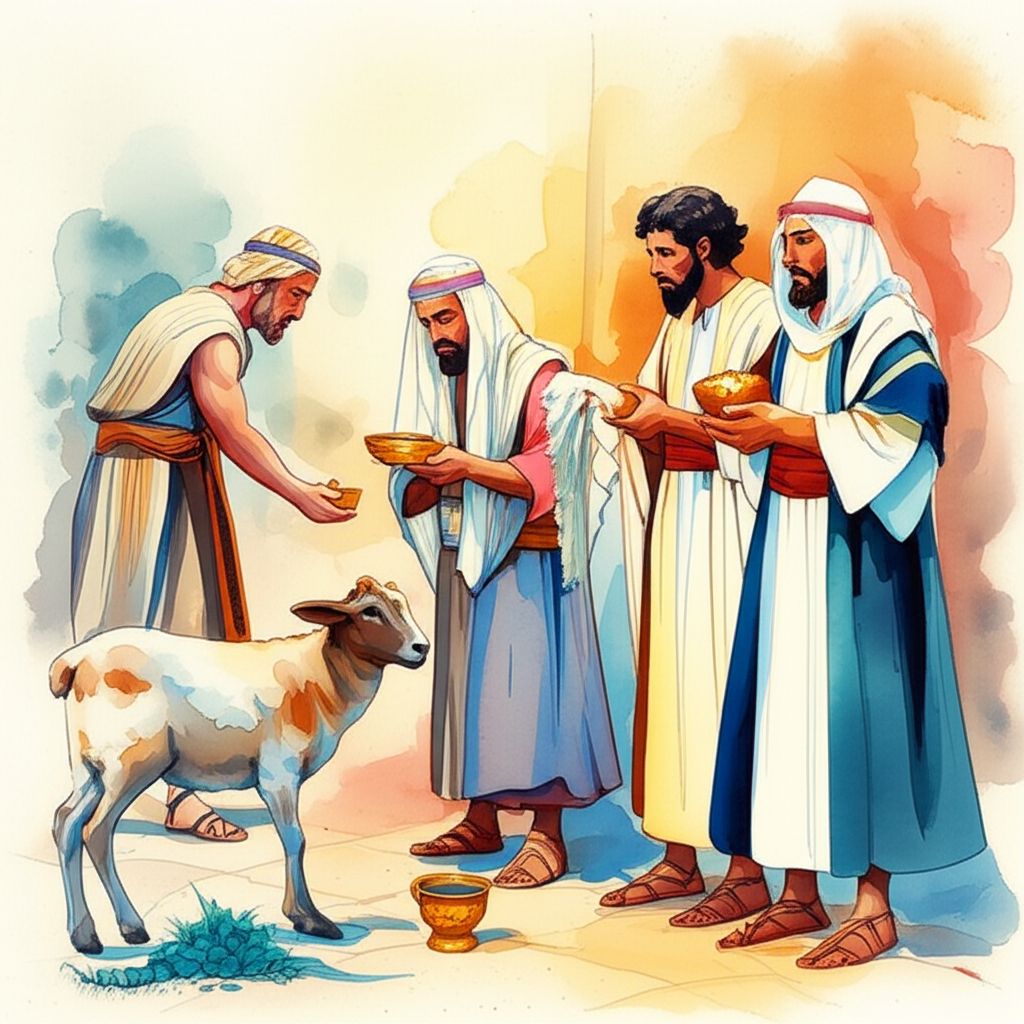
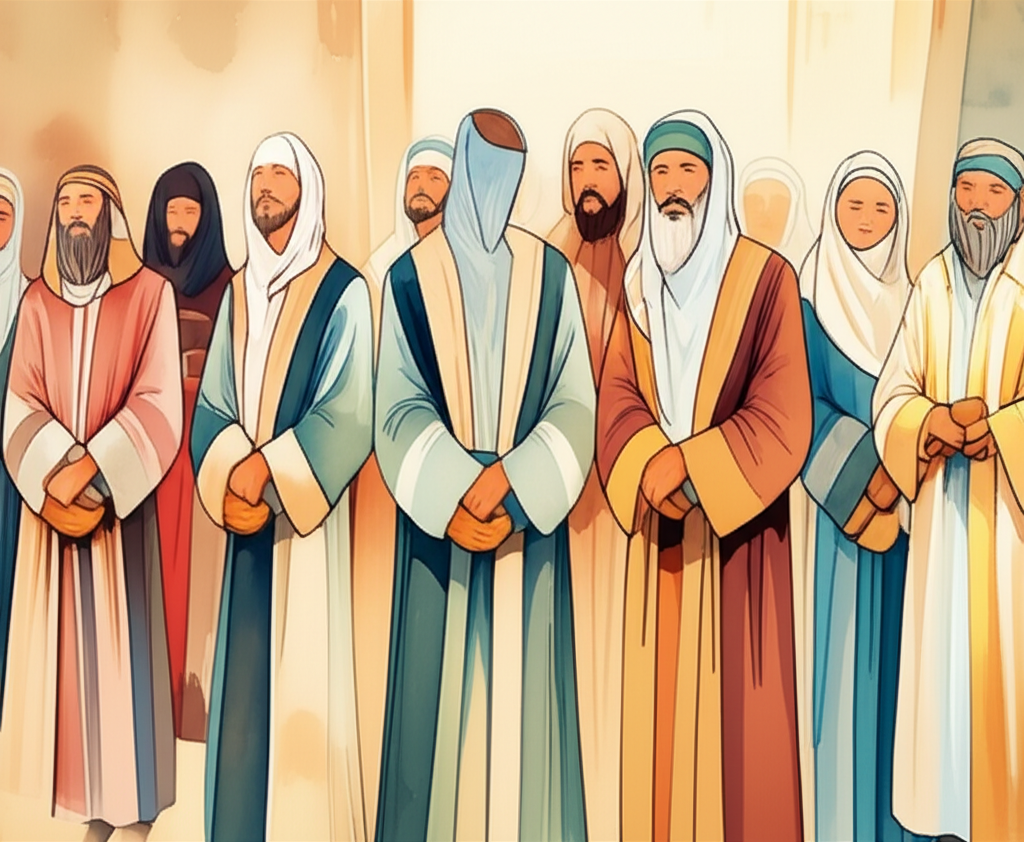
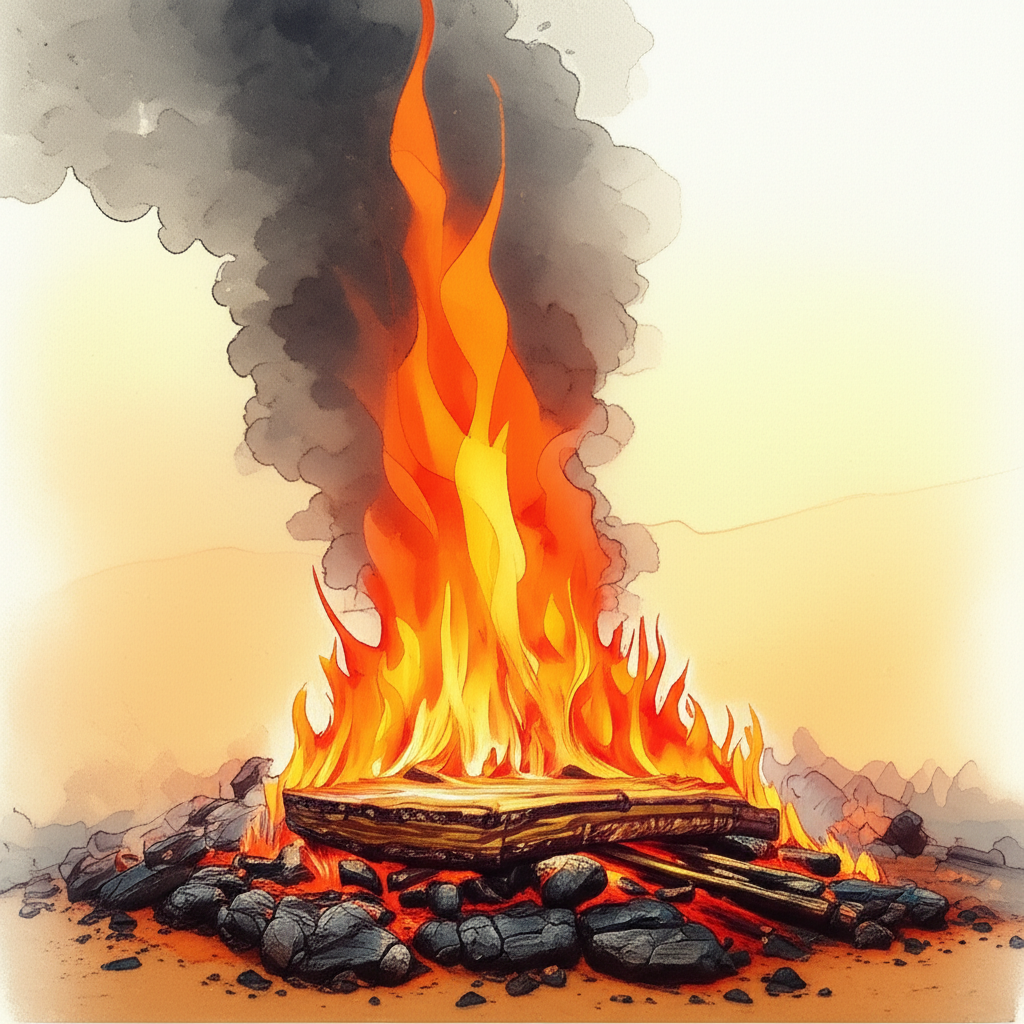
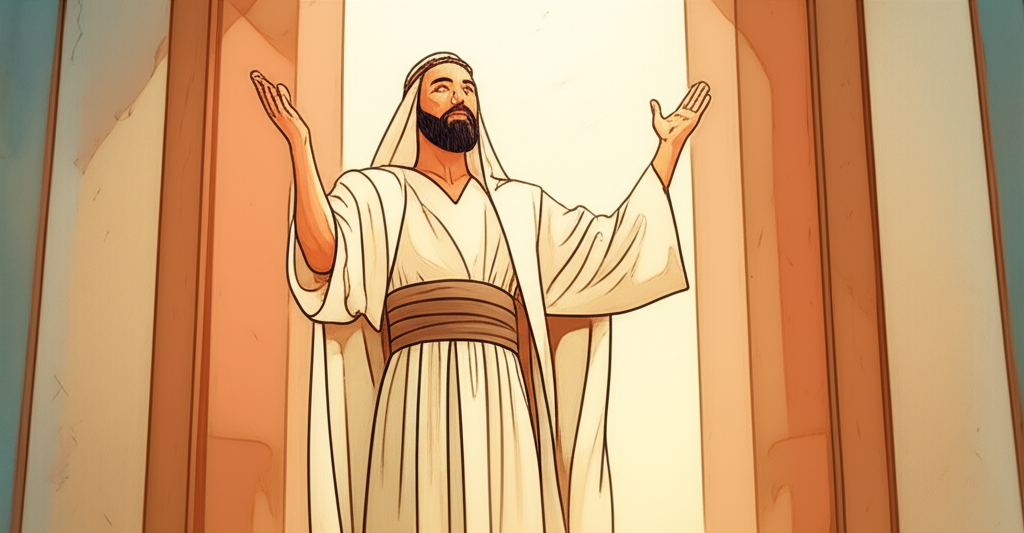
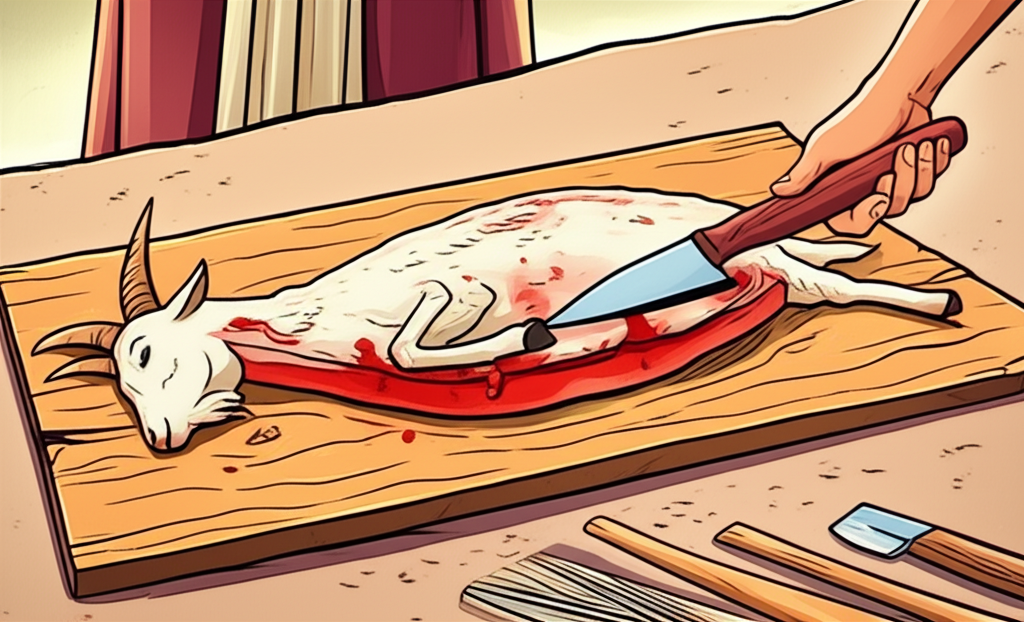
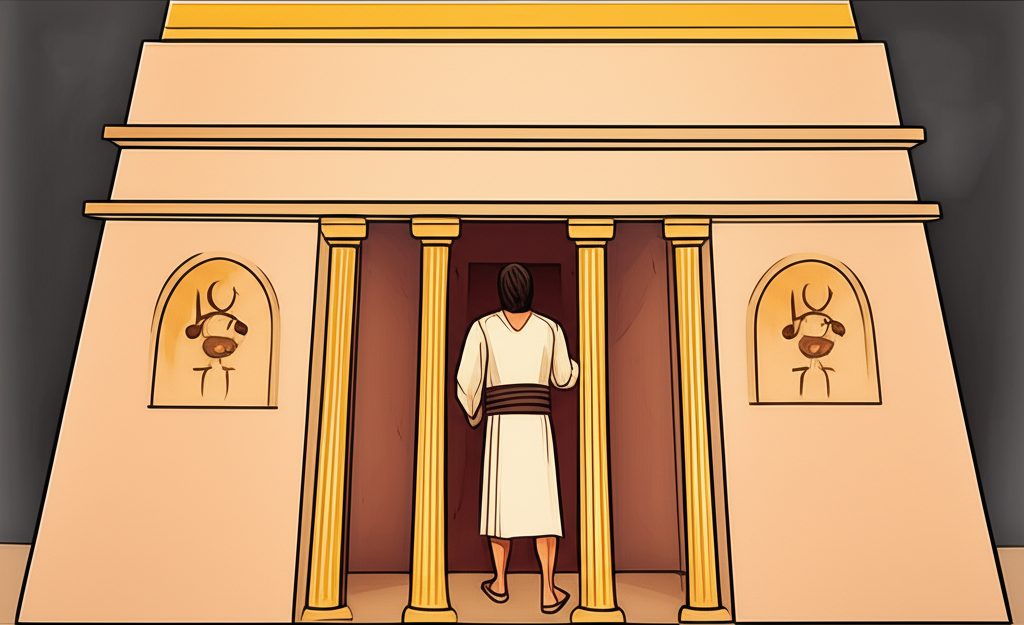
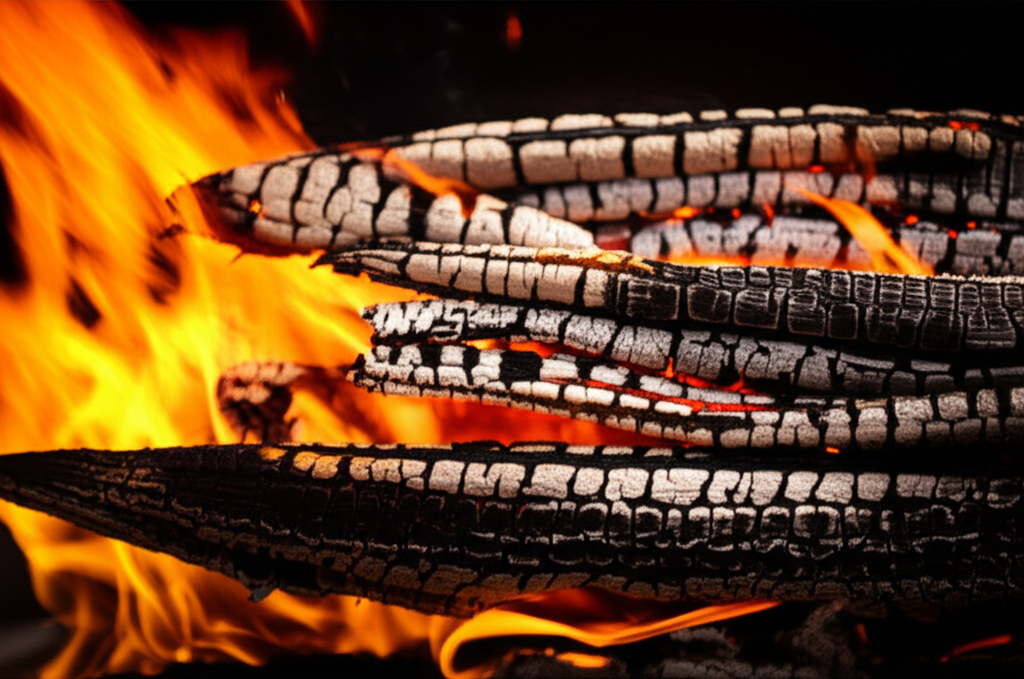
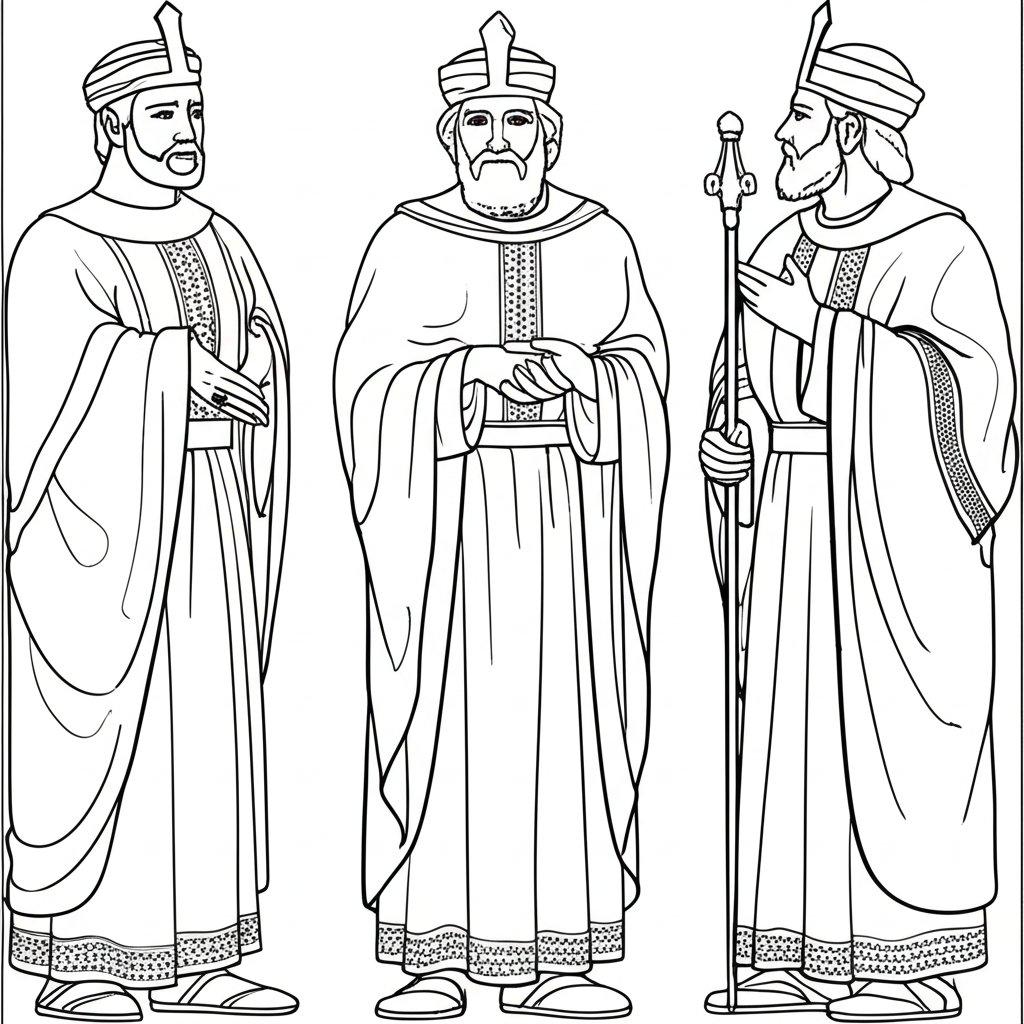
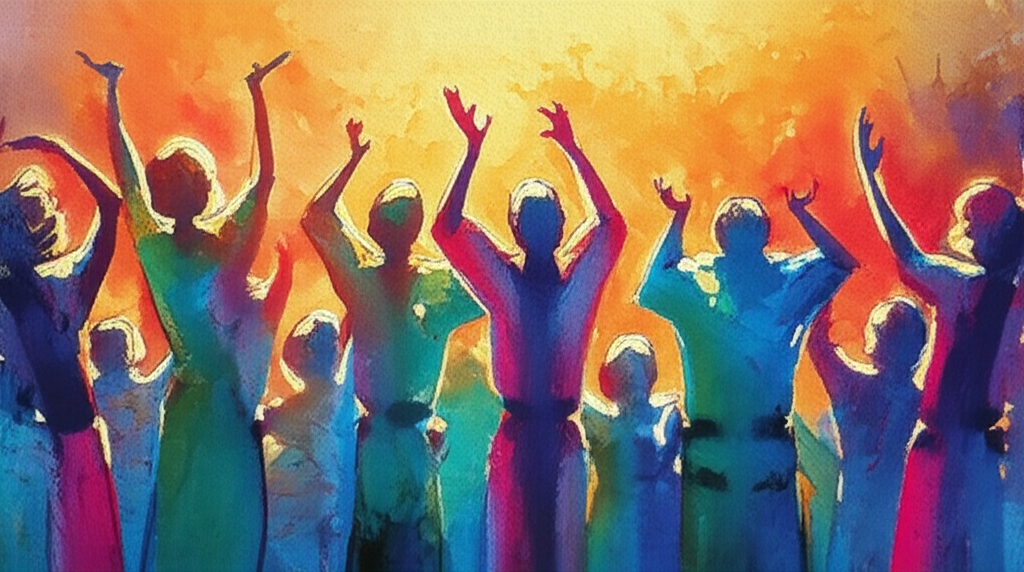
Leviticus chapter 9 kjv
- 1 And it came to pass on the eighth day, that Moses called Aaron and his sons, and the elders of Israel;
- 2 And he said unto Aaron, Take thee a young calf for a sin offering, and a ram for a burnt offering, without blemish, and offer them before the LORD.
- 3 And unto the children of Israel thou shalt speak, saying, Take ye a kid of the goats for a sin offering; and a calf and a lamb, both of the first year, without blemish, for a burnt offering;
- 4 Also a bullock and a ram for peace offerings, to sacrifice before the LORD; and a meat offering mingled with oil: for to day the LORD will appear unto you.
- 5 And they brought that which Moses commanded before the tabernacle of the congregation: and all the congregation drew near and stood before the LORD.
- 6 And Moses said, This is the thing which the LORD commanded that ye should do: and the glory of the LORD shall appear unto you.
- 7 And Moses said unto Aaron, Go unto the altar, and offer thy sin offering, and thy burnt offering, and make an atonement for thyself, and for the people: and offer the offering of the people, and make an atonement for them; as the LORD commanded.
- 8 Aaron therefore went unto the altar, and slew the calf of the sin offering, which was for himself.
- 9 And the sons of Aaron brought the blood unto him: and he dipped his finger in the blood, and put it upon the horns of the altar, and poured out the blood at the bottom of the altar:
- 10 But the fat, and the kidneys, and the caul above the liver of the sin offering, he burnt upon the altar; as the LORD commanded Moses.
- 11 And the flesh and the hide he burnt with fire without the camp.
- 12 And he slew the burnt offering; and Aaron's sons presented unto him the blood, which he sprinkled round about upon the altar.
- 13 And they presented the burnt offering unto him, with the pieces thereof, and the head: and he burnt them upon the altar.
- 14 And he did wash the inwards and the legs, and burnt them upon the burnt offering on the altar.
- 15 And he brought the people's offering, and took the goat, which was the sin offering for the people, and slew it, and offered it for sin, as the first.
- 16 And he brought the burnt offering, and offered it according to the manner.
- 17 And he brought the meat offering, and took an handful thereof, and burnt it upon the altar, beside the burnt sacrifice of the morning.
- 18 He slew also the bullock and the ram for a sacrifice of peace offerings, which was for the people: and Aaron's sons presented unto him the blood, which he sprinkled upon the altar round about,
- 19 And the fat of the bullock and of the ram, the rump, and that which covereth the inwards, and the kidneys, and the caul above the liver:
- 20 And they put the fat upon the breasts, and he burnt the fat upon the altar:
- 21 And the breasts and the right shoulder Aaron waved for a wave offering before the LORD; as Moses commanded.
- 22 And Aaron lifted up his hand toward the people, and blessed them, and came down from offering of the sin offering, and the burnt offering, and peace offerings.
- 23 And Moses and Aaron went into the tabernacle of the congregation, and came out, and blessed the people: and the glory of the LORD appeared unto all the people.
- 24 And there came a fire out from before the LORD, and consumed upon the altar the burnt offering and the fat: which when all the people saw, they shouted, and fell on their faces.
Leviticus chapter 9 nkjv
- 1 It came to pass on the eighth day that Moses called Aaron and his sons and the elders of Israel.
- 2 And he said to Aaron, "Take for yourself a young bull as a sin offering and a ram as a burnt offering, without blemish, and offer them before the LORD.
- 3 And to the children of Israel you shall speak, saying, 'Take a kid of the goats as a sin offering, and a calf and a lamb, both of the first year, without blemish, as a burnt offering,
- 4 also a bull and a ram as peace offerings, to sacrifice before the LORD, and a grain offering mixed with oil; for today the LORD will appear to you.' "
- 5 So they brought what Moses commanded before the tabernacle of meeting. And all the congregation drew near and stood before the LORD.
- 6 Then Moses said, "This is the thing which the LORD commanded you to do, and the glory of the LORD will appear to you."
- 7 And Moses said to Aaron, "Go to the altar, offer your sin offering and your burnt offering, and make atonement for yourself and for the people. Offer the offering of the people, and make atonement for them, as the LORD commanded."
- 8 Aaron therefore went to the altar and killed the calf of the sin offering, which was for himself.
- 9 Then the sons of Aaron brought the blood to him. And he dipped his finger in the blood, put it on the horns of the altar, and poured the blood at the base of the altar.
- 10 But the fat, the kidneys, and the fatty lobe from the liver of the sin offering he burned on the altar, as the LORD had commanded Moses.
- 11 The flesh and the hide he burned with fire outside the camp.
- 12 And he killed the burnt offering; and Aaron's sons presented to him the blood, which he sprinkled all around on the altar.
- 13 Then they presented the burnt offering to him, with its pieces and head, and he burned them on the altar.
- 14 And he washed the entrails and the legs, and burned them with the burnt offering on the altar.
- 15 Then he brought the people's offering, and took the goat, which was the sin offering for the people, and killed it and offered it for sin, like the first one.
- 16 And he brought the burnt offering and offered it according to the prescribed manner.
- 17 Then he brought the grain offering, took a handful of it, and burned it on the altar, besides the burnt sacrifice of the morning.
- 18 He also killed the bull and the ram as sacrifices of peace offerings, which were for the people. And Aaron's sons presented to him the blood, which he sprinkled all around on the altar,
- 19 and the fat from the bull and the ram?the fatty tail, what covers the entrails and the kidneys, and the fatty lobe attached to the liver;
- 20 and they put the fat on the breasts. Then he burned the fat on the altar;
- 21 but the breasts and the right thigh Aaron waved as a wave offering before the LORD, as Moses had commanded.
- 22 Then Aaron lifted his hand toward the people, blessed them, and came down from offering the sin offering, the burnt offering, and peace offerings.
- 23 And Moses and Aaron went into the tabernacle of meeting, and came out and blessed the people. Then the glory of the LORD appeared to all the people,
- 24 and fire came out from before the LORD and consumed the burnt offering and the fat on the altar. When all the people saw it, they shouted and fell on their faces.
Leviticus chapter 9 niv
- 1 On the eighth day Moses summoned Aaron and his sons and the elders of Israel.
- 2 He said to Aaron, "Take a bull calf for your sin offering and a ram for your burnt offering, both without defect, and present them before the LORD.
- 3 Then say to the Israelites: 'Take a male goat for a sin offering, a calf and a lamb?both a year old and without defect?for a burnt offering,
- 4 and an ox and a ram for a fellowship offering to sacrifice before the LORD, together with a grain offering mixed with olive oil. For today the LORD will appear to you.'?"
- 5 They took the things Moses commanded to the front of the tent of meeting, and the entire assembly came near and stood before the LORD.
- 6 Then Moses said, "This is what the LORD has commanded you to do, so that the glory of the LORD may appear to you."
- 7 Moses said to Aaron, "Come to the altar and sacrifice your sin offering and your burnt offering and make atonement for yourself and the people; sacrifice the offering that is for the people and make atonement for them, as the LORD has commanded."
- 8 So Aaron came to the altar and slaughtered the calf as a sin offering for himself.
- 9 His sons brought the blood to him, and he dipped his finger into the blood and put it on the horns of the altar; the rest of the blood he poured out at the base of the altar.
- 10 On the altar he burned the fat, the kidneys and the long lobe of the liver from the sin offering, as the LORD commanded Moses;
- 11 the flesh and the hide he burned up outside the camp.
- 12 Then he slaughtered the burnt offering. His sons handed him the blood, and he splashed it against the sides of the altar.
- 13 They handed him the burnt offering piece by piece, including the head, and he burned them on the altar.
- 14 He washed the internal organs and the legs and burned them on top of the burnt offering on the altar.
- 15 Aaron then brought the offering that was for the people. He took the goat for the people's sin offering and slaughtered it and offered it for a sin offering as he did with the first one.
- 16 He brought the burnt offering and offered it in the prescribed way.
- 17 He also brought the grain offering, took a handful of it and burned it on the altar in addition to the morning's burnt offering.
- 18 He slaughtered the ox and the ram as the fellowship offering for the people. His sons handed him the blood, and he splashed it against the sides of the altar.
- 19 But the fat portions of the ox and the ram?the fat tail, the layer of fat, the kidneys and the long lobe of the liver?
- 20 these they laid on the breasts, and then Aaron burned the fat on the altar.
- 21 Aaron waved the breasts and the right thigh before the LORD as a wave offering, as Moses commanded.
- 22 Then Aaron lifted his hands toward the people and blessed them. And having sacrificed the sin offering, the burnt offering and the fellowship offering, he stepped down.
- 23 Moses and Aaron then went into the tent of meeting. When they came out, they blessed the people; and the glory of the LORD appeared to all the people.
- 24 Fire came out from the presence of the LORD and consumed the burnt offering and the fat portions on the altar. And when all the people saw it, they shouted for joy and fell facedown.
Leviticus chapter 9 esv
- 1 On the eighth day Moses called Aaron and his sons and the elders of Israel,
- 2 and he said to Aaron, "Take for yourself a bull calf for a sin offering and a ram for a burnt offering, both without blemish, and offer them before the LORD.
- 3 And say to the people of Israel, 'Take a male goat for a sin offering, and a calf and a lamb, both a year old without blemish, for a burnt offering,
- 4 and an ox and a ram for peace offerings, to sacrifice before the LORD, and a grain offering mixed with oil, for today the LORD will appear to you.'"
- 5 And they brought what Moses commanded in front of the tent of meeting, and all the congregation drew near and stood before the LORD.
- 6 And Moses said, "This is the thing that the LORD commanded you to do, that the glory of the LORD may appear to you."
- 7 Then Moses said to Aaron, "Draw near to the altar and offer your sin offering and your burnt offering and make atonement for yourself and for the people, and bring the offering of the people and make atonement for them, as the LORD has commanded."
- 8 So Aaron drew near to the altar and killed the calf of the sin offering, which was for himself.
- 9 And the sons of Aaron presented the blood to him, and he dipped his finger in the blood and put it on the horns of the altar and poured out the blood at the base of the altar.
- 10 But the fat and the kidneys and the long lobe of the liver from the sin offering he burned on the altar, as the LORD commanded Moses.
- 11 The flesh and the skin he burned up with fire outside the camp.
- 12 Then he killed the burnt offering, and Aaron's sons handed him the blood, and he threw it against the sides of the altar.
- 13 And they handed the burnt offering to him, piece by piece, and the head, and he burned them on the altar.
- 14 And he washed the entrails and the legs and burned them with the burnt offering on the altar.
- 15 Then he presented the people's offering and took the goat of the sin offering that was for the people and killed it and offered it as a sin offering, like the first one.
- 16 And he presented the burnt offering and offered it according to the rule.
- 17 And he presented the grain offering, took a handful of it, and burned it on the altar, besides the burnt offering of the morning.
- 18 Then he killed the ox and the ram, the sacrifice of peace offerings for the people. And Aaron's sons handed him the blood, and he threw it against the sides of the altar.
- 19 But the fat pieces of the ox and of the ram, the fat tail and that which covers the entrails and the kidneys and the long lobe of the liver ?
- 20 they put the fat pieces on the breasts, and he burned the fat pieces on the altar,
- 21 but the breasts and the right thigh Aaron waved for a wave offering before the LORD, as Moses commanded.
- 22 Then Aaron lifted up his hands toward the people and blessed them, and he came down from offering the sin offering and the burnt offering and the peace offerings.
- 23 And Moses and Aaron went into the tent of meeting, and when they came out they blessed the people, and the glory of the LORD appeared to all the people.
- 24 And fire came out from before the LORD and consumed the burnt offering and the pieces of fat on the altar, and when all the people saw it, they shouted and fell on their faces.
Leviticus chapter 9 nlt
- 1 After the ordination ceremony, on the eighth day, Moses called together Aaron and his sons and the elders of Israel.
- 2 He said to Aaron, "Take a young bull for a sin offering and a ram for a burnt offering, both without defects, and present them to the LORD.
- 3 Then tell the Israelites, 'Take a male goat for a sin offering, and take a calf and a lamb, both a year old and without defects, for a burnt offering.
- 4 Also take a bull and a ram for a peace offering and flour moistened with olive oil for a grain offering. Present all these offerings to the LORD because the LORD will appear to you today.'"
- 5 So the people presented all these things at the entrance of the Tabernacle, just as Moses had commanded. Then the whole community came forward and stood before the LORD.
- 6 And Moses said, "This is what the LORD has commanded you to do so that the glory of the LORD may appear to you."
- 7 Then Moses said to Aaron, "Come to the altar and sacrifice your sin offering and your burnt offering to purify yourself and the people. Then present the offerings of the people to purify them, making them right with the LORD, just as he has commanded."
- 8 So Aaron went to the altar and slaughtered the calf as a sin offering for himself.
- 9 His sons brought him the blood, and he dipped his finger in it and put it on the horns of the altar. He poured out the rest of the blood at the base of the altar.
- 10 Then he burned on the altar the fat, the kidneys, and the long lobe of the liver from the sin offering, just as the LORD had commanded Moses.
- 11 The meat and the hide, however, he burned outside the camp.
- 12 Next Aaron slaughtered the animal for the burnt offering. His sons brought him the blood, and he splattered it against all sides of the altar.
- 13 Then they handed him each piece of the burnt offering, including the head, and he burned them on the altar.
- 14 Then he washed the internal organs and the legs and burned them on the altar along with the rest of the burnt offering.
- 15 Next Aaron presented the offerings of the people. He slaughtered the people's goat and presented it as an offering for their sin, just as he had first done with the offering for his own sin.
- 16 Then he presented the burnt offering and sacrificed it in the prescribed way.
- 17 He also presented the grain offering, burning a handful of the flour mixture on the altar, in addition to the regular burnt offering for the morning.
- 18 Then Aaron slaughtered the bull and the ram for the people's peace offering. His sons brought him the blood, and he splattered it against all sides of the altar.
- 19 Then he took the fat of the bull and the ram ? the fat of the broad tail and from around the internal organs ? along with the kidneys and the long lobes of the livers.
- 20 He placed these fat portions on top of the breasts of these animals and burned them on the altar.
- 21 Aaron then lifted up the breasts and right thighs as a special offering to the LORD, just as Moses had commanded.
- 22 After that, Aaron raised his hands toward the people and blessed them. Then, after presenting the sin offering, the burnt offering, and the peace offering, he stepped down from the altar.
- 23 Then Moses and Aaron went into the Tabernacle, and when they came back out, they blessed the people again, and the glory of the LORD appeared to the whole community.
- 24 Fire blazed forth from the LORD's presence and consumed the burnt offering and the fat on the altar. When the people saw this, they shouted with joy and fell face down on the ground.
- Bible Book of Leviticus
- 1 Laws for Burnt Offerings
- 2 Laws for Grain Offerings
- 3 Laws for Peace Offerings
- 4 Sacrifies for Sin
- 5 Laws for Guilt Offerings
- 6 The Priests and the Offerings
- 7 Law of the trespass offering
- 8 Consecration of Aaron and His Sons
- 9 The Lord Accepts Aaron's Offering
- 10 The Death of Nadab and Abihu
- 11 Clean and unclean Animals
- 12 Purification After Childbirth
- 13 Laws About Leprosy
- 14 Laws for Cleansing Lepers
- 15 Sperm Discharge and Menstruation cycle
- 16 Day of Atonement
- 17 The Place of Sacrifice
- 18 Unlawful Sexual Relations
- 19 Levitical Laws for Levites
- 20 Punishment for Child Sacrifice
- 21 Holiness and the Priests
- 22 Acceptable Offerings
- 23 The Feasts of the Lord
- 24 The Lamps
- 25 Year of Jubilee
- 26 Blessings for Obedience
- 27 Laws About Vows